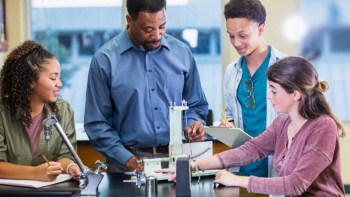The United Nations and the European Space Agency (ESA) should encourage developing countries to invest in small-scale space science projects according to Hans Haubold, in the UN's office for outer space affairs. "Astronomy has deep roots in virtually every human culture," he told PhysicsWeb, "and it inspires young people to pursue careers in engineering, mathematics, and science." Only 20 out of the 188 countries in the UN have access to the full range of astronomical facilities (http://xxx.lanl.gov/abs/physics/9910042).
During the 1990s the UN and ESA organized a series of workshops to promote the development of small telescopes in countries such as Sri Lanka, the Philippines, Colombia and Jordan. Over 800 astronomers have attended these workshops. And although the workshops have not led to any new telescopes in Africa, they have resulted in a bilingual newsletter for the space community called African Skies. Next year the workshop will be held in Toulose, France and will look at the possibility of creating a network of robotic telescopes in Asia.
Haubold believes that the workshops have helped to bring scientists from developing countries together. He also believes that this is the only way that such nations will learn how to exploit satellite communications, remote sensing and satellite meteorology. “How can these countries benefit from such technologies without basic knowledge in astronomy?” asks Haubold.



